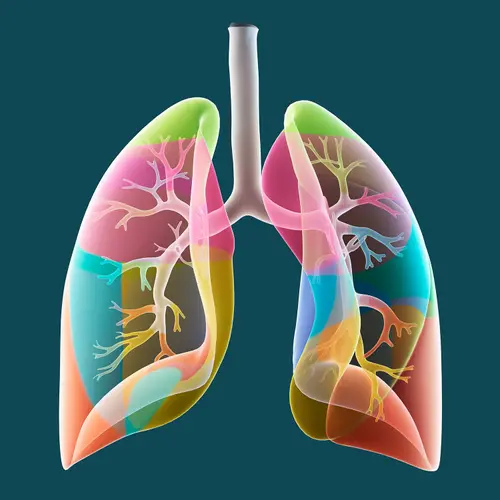May 16, 2025 – The FDA has granted fast-track approval to a first-of-its-kind treatment for a type of advanced lung cancer.
The treatment, which is known as telisotuzumab vedotin but sold as Emrelis, is for adults with non-squamous non-small-cell lung cancer (NSCLC) that makes too much of a protein called c-Met and who have received prior therapy. By targeting NSCLC tumors that overproduce c-Met, Emrelis offers a more personalized treatment option based on patients' unique cancer markers, particularly for those who no longer respond to standard therapy.
The FDA has also approved a lab test made by Roche Diagnostics to detect high levels of c-Met protein to see if a patient may benefit from Emrelis.
Lung cancer is the leading cause of cancer-related deaths, with NSCLC accounting for about 85% of cases. About 25% of people with advanced NSCLC overproduce c-Met, which makes the cancer more aggressive and harder to treat.
Emrelis was approved based on a clinical trial that tested how well it worked in 84 previously treated patients with NSCLC whose tumors overproduced c-Met. Results showed that 35% of patients responded to the new treatment, which lasted 7.2 months, on average Continued approval for this use will depend on confirmation of the treatment's benefits in future clinical trials, according to AbbVie, the maker of Emrelis. A global trial is also under way to test Emrelis alone for the same condition.
Emrelis is part of a class of medicines called antibody-drug conjugates (ADCs), which are designed to target cancer cells while leaving healthy cells alone. It combines a monoclonal antibody called telisotuzumab, which homes in on a protein called c-Met, with a cancer-fighting drug called monomethyl auristatin E (MMAE). Emrelis attaches to cancer cells that produce too much c-Met and delivers MMAE directly inside them, where it blocks cell division and stops the cancer from growing. The medicine will be given as IV infusion every two weeks, for as long as the treatment works and the side effects are tolerable.
"People with c-Met overexpressing NSCLC have poor prognosis and limited treatment options, and Emrelis is a first-in-class ADC that can address a critical unmet need for this patient population," Jonathan Goldman, MD, a professor of medicine and director of thoracic oncology clinical trials at the University of California, Los Angeles, said in a statement.
The most common side effects of Emrelis include nerve problems in the hands and feet, fatigue, loss of appetite, swelling in the arms or legs, infusion-related reactions, and changes in blood test results, such as elevated liver enzymes or low levels of hemoglobin, sodium, phosphorus, calcium, and white blood cells.
Before starting Emrelis, patients should tell their doctor about their medical history, especially if they have nerve issues, lung or breathing problems (other than lung cancer), eye problems, or liver disease.
Emrelis can harm an unborn baby, so women who are pregnant or planning to become pregnant should tell their doctor. Women who can become pregnant should take a pregnancy test before starting treatment and use birth control during treatment and for two months after the last dose. Men with partners who can become pregnant should also use birth control during treatment and for four months afterward.
Patients should not breastfeed while taking Emrelis and for a month after the final dose, as it's unknown whether the drug passes into breast milk.
It's also important to tell the doctor about any medications, supplements, or vitamins being taken, as some may increase the risk of side effects when combined with Emrelis.
Patients should contact their doctor right away if they have numbness, muscle weakness, a hard time walking, trouble breathing, wheezing, chest discomfort, fever or chills, blurred vision, eye pain or swelling, itching, a rash, or headaches.


